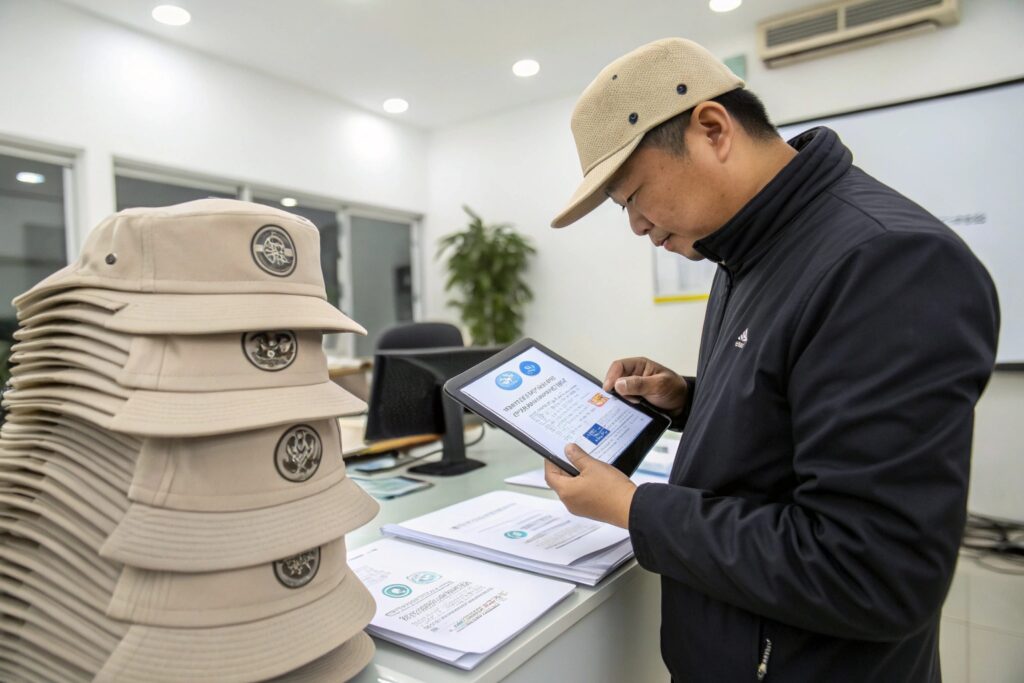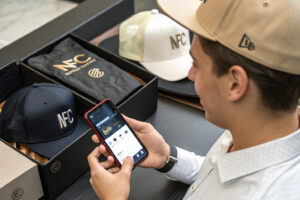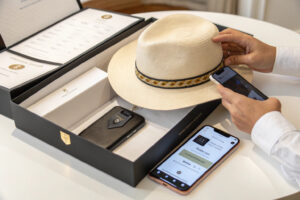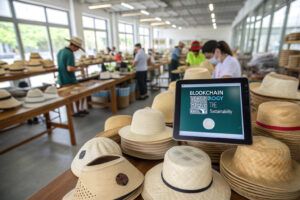Ordering hats from China without checking factory certifications is like walking into a customs trap. You might save time now, but lose everything when your shipment gets held, rejected, or fined.
To verify hat manufacturer certifications for U.S. imports, request lab test reports, review international compliance documents like ISO/BSCI/SGS, and use third-party labs or buyer audits to confirm product safety.
In this article, I’ll share what we do for our clients to pass U.S. import requirements—and how you can make sure your supplier is up to standard before placing your next order.
What Certifications Do US Hat Importers Require?
U.S. customs doesn’t care about excuses. If your hats don’t meet safety, labeling, or flammability standards, they won’t clear. Worse—your brand reputation could take a hit.
U.S. hat importers require CPSIA compliance, flammability testing (16 CFR 1610), proper fiber labeling (FTC), and in some cases, documentation of product safety certifications like OEKO-TEX or REACH.
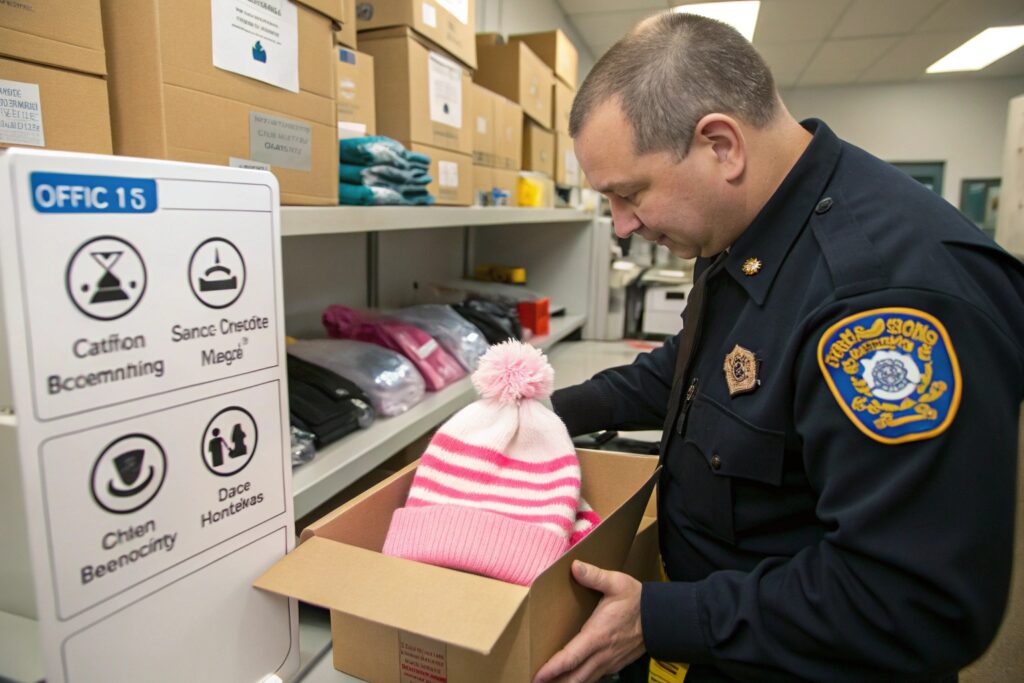
Which certifications matter most for U.S. imports?
| Certification/Test | Required For | Notes |
|---|---|---|
| CPSIA (Children’s Products) | Kids hats under 12 yrs | Mandatory, includes lead limits |
| 16 CFR 1610 | Adult fabric hats | Flammability standard |
| OEKO-TEX Standard 100 | Eco-conscious adult hats | Optional, boosts trust |
| ISO 9001/14001 | Factory-level QC, EMS | Not required, adds credibility |
| BSCI/SEDEX | Ethical audit certifications | Optional, many buyers prefer it |
At Global-Caps, we issue CPSIA test reports for all our children’s hats and use flame-resistant certified fabrics for adult items. For large retailers, we even manage OEKO-TEX sampling in advance.
Do all hats require testing?
Not all, but many do. U.S. customs focuses on intended user (adult vs child) and fabric material. For instance, hats with fleece or synthetic blends might trigger stricter inspection than cotton hats. Our strategy? Always test the first run, then re-use reports for future orders.
How to Check Factory Compliance Before Ordering?
Many suppliers promise compliance—but few back it up. You don’t want to find out your factory used fake certificates after your shipment is seized.
To check factory compliance, ask for scanned certificates, verify serial numbers on issuing bodies’ websites, and request photos or videos of production processes and lab samples.
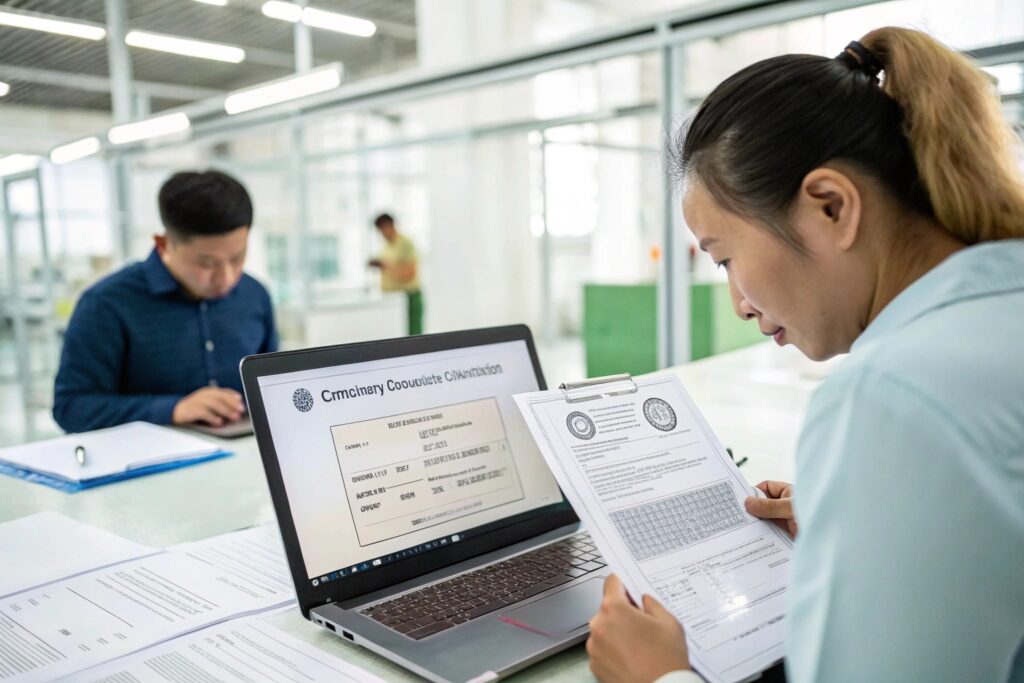
What documents should you request?
- Business License (Chinese version + English translation)
- ISO, BSCI, SEDEX certificates with company name
- Test reports from SGS, Intertek, TÜV
- Past order photos with logo or tag
- Internal quality control checklist
We always send full PDF copies of lab reports with a QR code or certification number. You can input these codes on the lab website to confirm they’re real.
How can I know if a certificate is fake?
Red flags:
- File is low quality or cropped
- Factory name is different from your supplier’s name
- No issuing date or expiry
- No lab address or signature
We’ve been audited by Walmart, Disney, and Target. So we follow a strict certificate verification SOP (standard operating procedure) before every mass order.
Which Testing Reports Are Valid for US Customs?
Not all tests are created equal. U.S. customs doesn’t just want to see a paper—they want it from a trusted lab.
Valid testing reports for U.S. customs are those issued by CPSC-accepted labs, such as SGS, Intertek, TÜV, or Eurofins, covering specific product categories like flammability, heavy metals, and labeling.
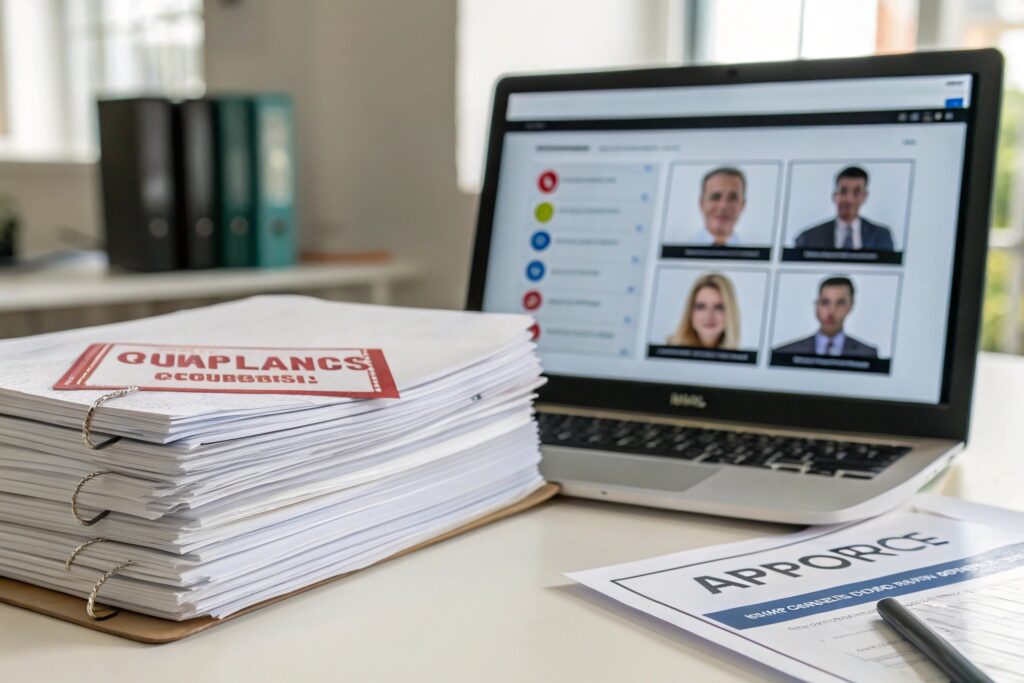
What does a compliant test report include?
- Lab name and address
- Date of issue and report number
- Product photo and description
- Test method used (e.g., ASTM, ISO)
- Result summary (PASS/FAIL)
- Name of applicant (factory or brand)
We provide both Chinese and English versions for international review. Our lab partners issue digital reports with trackable links for buyers to archive or present to brokers.
What happens if your shipment lacks valid testing?
If customs selects your shipment for inspection:
- You may need to pay a third-party lab to test post-arrival
- Delay of 5–15 working days
- If failed: goods returned, destroyed, or relabeled
We pre-upload test reports during export declaration so CBP can review data even before the cargo lands. That’s how we cut risk.
Can Third-Party Labs Help Verify Hat Quality?
Absolutely. Third-party labs don’t just run tests—they also provide expert evaluation, factory audits, and even shipment inspections.
Yes, third-party labs like SGS, Intertek, and TÜV can help verify hat quality, test compliance, inspect production lots, and issue internationally recognized certificates for U.S. customs.
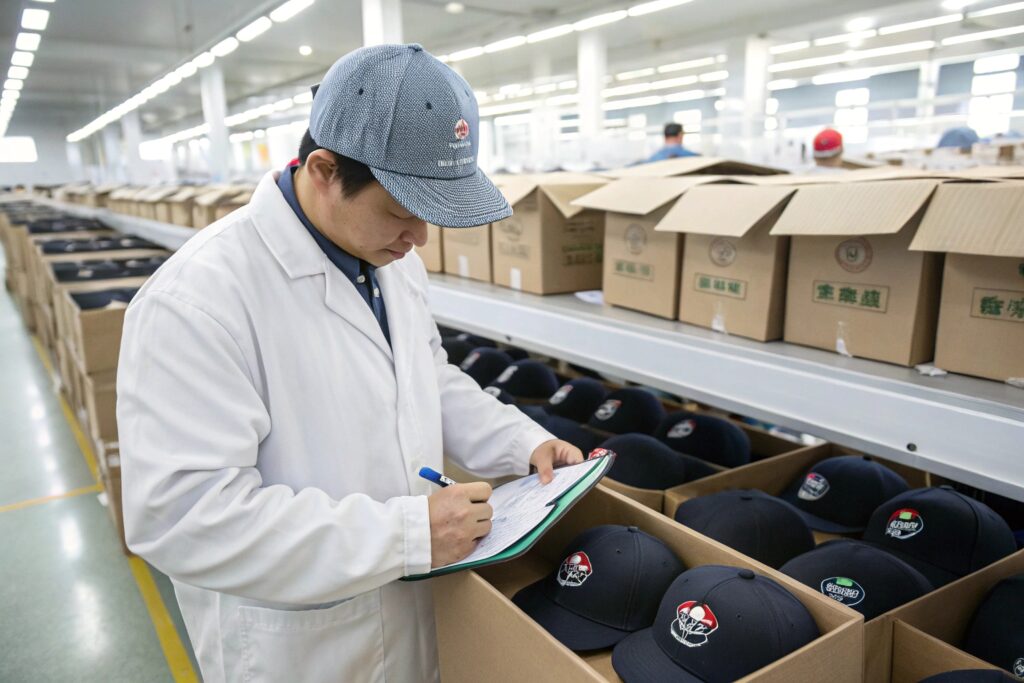
What services do labs offer beyond testing?
| Service Type | Purpose | Benefit for Importer |
|---|---|---|
| Pre-Production Audit | Factory check, equipment review | Prevents future QC issues |
| In-Line Inspection | Checks during production | Detects defects early |
| Final Random Inspection | Before shipment leaves port | Confirms consistency |
| Sample Testing | Material or chemical test | Required for customs clearance |
We cooperate with SGS and send sample beanies, baseball caps, or sun hats before the bulk production begins. This ensures raw materials are already verified.
How much do third-party tests cost?
- Basic flammability test: $80–$120
- Heavy metal + CPSIA: $180–$250
- Fabric composition verification: $50–$90
- Full final inspection: $100–$200 per batch
Our high-volume partnerships allow clients to bundle tests and inspections. Many first-time importers use our lab coordination to avoid having to handle it alone.
Conclusion
Verifying your hat supplier’s certifications isn’t optional—it’s the key to smooth U.S. customs clearance and brand protection. Always ask for test reports, verify them with official labs, and when in doubt, hire a third party to double-check.
